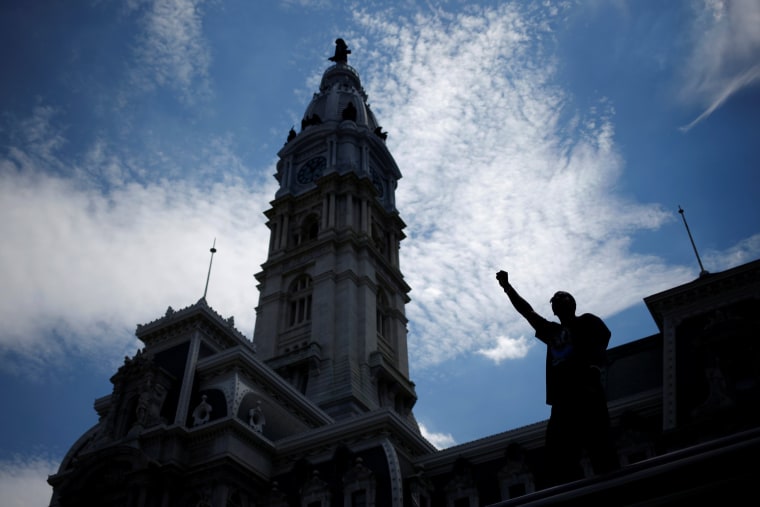PHILADELPHIA — Superdelegates could play a smaller role in future Democratic primaries after the party this weekend approved the creation of a commission tasked with reducing the number of unpledged nominating delegates by up to two-thirds.
The commission was created as a compromise between the Hillary Clinton and Bernie Sanders campaigns during a meeting of the Democratic Party’s Rules Committee late Saturday, just ahead of the national convention here.
An amendment backed by Sanders supporters that would have completely eliminated superdelegates was voted down.
Related: Top DNC Official Apologizes for 'Insensitive' Email After Leak
The commission is tasked with coming up with a wide variety of recommendations to reform the party’s presidential nominating process, including a mandate to slash the number of unpledged superdelegates, which have been a source of controversy among Sanders supporters this year.
Superdelgates are party officials who can vote for whomever they want, regardless of the outcomes of primaries and caucuses. They have been a source of controversy in both 2008 and 2016, when Sanders allies claimed they unfairly tipped the balance for Clinton.

Sanders campaign manager Jeff Weaver hailed the creation of the commission, which is tasked with completing its work by January 1, 2018, as “a tremendous victory for Sen. Sanders' fight to democratize the Democratic Party.”
“We are pleased to work with the Clinton campaign to enact this historic commission,” he added.
However, there is no guarantee the change will be implemented as the commission’s recommendations will still have to be approved by the Democratic National Committee, which has ignored similar recommendations from previous commissions.
“The Democratic Party has had many commissions. Sometimes they’re listened to and sometimes they’re not,” said Ken Zinn, a member of the Rules Committee and the political director of the National Nurses United union, which supports Sanders. “It’s going to require the movement to make sure that the DNC actually implements this.”
Under the proposed change, members of Congress, governors, and top party dignitaries like current and former presidents would remain unpledged delegates to the national convention, meaning they can vote for whomever they want.
However, the majority of the party’s so-called superdelegates — which include union leaders, mayors, state party chairmen, and more — will have to cast their nominating ballot based on the outcome of primaries and caucuses in their home states.
The commission will also investigate a number of other ways to make the nominating process more fair and representative — including taking a hard look at caucuses, which Clinton allies and good-government groups say are undemocratic.
Related: Democrats Gear Up for Fight on Superdelegates
Sanders outperformed Clinton in caucuses, in part because they require extra time and effort in which to participate, thus often limiting participation to only the most enthusiastic voters.
The commission will be chaired by Clinton ally Jennifer O’Malley Dillon, who served as deputy campaign manager on President Obama’s reelection bid. It’s vice chair will be Sanders supporter Larry Cohen, the former president of the Communications Workers of American union.
Sanders allies say they are confident the DNC will seriously consider adopting the commission's recommendations. But that was not the outcome of a previous commission, convened after the 2008 primary, that had called for eliminating superdelegates.
That commission included former Obama campaign manager David Plouffe, Rep. Jim Clyburn, and Sen. Claire McCaskill, all of whom are now staunch Clinton allies.
Ultimately, however, the DNC decided not to adopt their recommendations.
